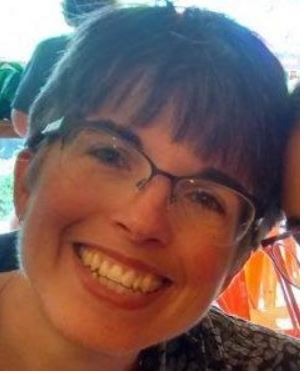Learn about the benefits of constructing a multi-year internship from a MLIS student's perspective.

Librarians need an MLIS: True or false?
To have a degree or not to have a degree? That is indeed the question … for our panellists and also clearly for many of us in the library profession.
When we put out the call for folks to participate in our first-ever Open Shelf panel, we hoped for at least four colleagues to come forward; instead, 12 have chosen to participate. As a result, we are going to hold one panel a month for three months (in March, April and May). We have a good mix of soon-to-be grads, librarians who are at the beginning, middle or end of their careers, as well as at least one participant who has degrees, but not a library science degree.
I think we are going to have three very good conversations about the need for certain credentials in our field.
I’ve been pondering this question of credentials for a while. When I started as a subject specialist in the Carleton University Library in 2008, I had an undergraduate degree under my belt and was more than halfway to finishing a master’s program in history. The subject specialists in my department are required to have a degree and a library tech diploma. However, the degree requirement is not exclusive to the MLIS—it can be a degree in any discipline. And traditionally, the professional staff holding these jobs have undergraduate degrees.
When I took this role, my then department head and I agreed that I would finish my MA in history and then would enroll in a master of library science program. My thinking was “If I have to do two more years of school, I’ll get the graduate degree. I’m old enough and have worked long enough to be very pragmatic about credentials: I might as well get the degree that opens the greatest number of doors.”
Twelve years later, I have an MLIS from the online program at the University of Alberta and am now a librarian at Carleton. Am I glad that I did the degree? Absolutely! I have had more doors to walk through than if I had not completed the program, and because I worked while taking courses, my job effectively became a co-op placement. As a result, every assignment choice I made, every chance to study abroad or to do an internship, every conversation I had could all be applied to and integrated into my work. But do I need the degree to do the job? Certainly not to perform my core duties of teaching, collecting, and liaising. I was doing those already.
As a historian of the unionization of faculty, librarians and support staff at Carleton, I understand how the need for this particular credential (a master’s in librarianship) evolved. And as a Carleton librarian, I know for sure that my status as academic staff and my compensation package are as good as they are because the librarians unionized and built the need for a library science degree into the collective agreement. So I could easily argue for both “sides” of this question and will definitely enjoy seeing how our panellists engage with this issue of credentials as well as with one another.
How will each panel work?
1. We have asked each panellist to prepare an opening statement in answer to the following question:
A master’s degree in library science should be required for anyone wanting to be a librarian. True or false? And why?
2. We have posted those statements for this first panel below.
3. On an announced date and time, all the panellists on a given panel will “meet” in the discussion space located below the post. I will moderate an initial conversation in which the panellists will respond to one another and to a follow-up question from me.
4. After 20–30 minutes of discussion, I will open the “floor” to any readers who are following along and would like to ask a question of their own and/or to respond to what has already been said.
5. After an additional 20 minutes, we will close the panel. However, any reader who wishes to post a comment and/or to ask further questions is welcome to do so. We will monitor the discussion for a couple of days, and panellists will respond as needed.
Martha Attridge Bufton
Editor-in-chief
Open Shelf
Panel I
Online for moderated “live” discussion and Q & A: March 12, 2020, from 1 p.m. to 2 p.m.
 Jennifer La Chapelle, MA, MLS, APLL
Jennifer La Chapelle, MA, MLS, APLL
Chief Executive Officer
Clearview Public Library
Climax librarian (that’s got you thinking!): Graduated with MLS in 1986
Before we can debate this question, there is another question that needs to be examined: What is a “librarian”? In terms of qualifications, different types of libraries (think public, school, university/college, special) may have very different definitions of this term.
And let’s be honest; users don’t really care what your qualifications are so long as you can connect them to the library materials/services they need.
After 30+ years in this field, I find my view on the necessity of having a master’s degree in library science has come around a full 180 degrees. In short, I now believe that while there are skill sets necessary to be a librarian, these can be obtained in a multitude of ways. After all, does a children’s librarian need a library science master’s degree more than they need children’s programming experience? So no, I do not think that a “‘librarian” needs a graduate degree in library science. In fact, I believe that the current library science curriculum is woefully inadequate and does not prepare students for the real world of librarianship.
 Paul Laverdure, BA, MA, PhD
Paul Laverdure, BA, MA, PhD
Director of Library, Archive and Technology Services
University of Sudbury
Mid-to-late-career librarian: No MLIS, MLS, MIS or MI. Not even a BLS.
False. While pressure from librarians holding the degree has made it increasingly difficult for those without the degree to gain employment or promotion in the field in some parts of Canada and the United States, especially in union environments, where collective agreements require the degree (or equivalent, however defined), the librarian is not in a regulated profession. If it is not about people’s money (accounting and law) or their bodies (medical), the public rightly does not see the need for this specific degree.
Thus, more than half of the practising public librarians in northern Ontario have no library degree, and it is still common for organizations in both rural and urban areas of Canada to hire people without the degree to fill specific roles within all kinds of library institutions, either in circulation, reference, acquisitions, rare books, archives or in management. We recognize that the degree is a useful indicator that a person has some of the knowledge and skills, but there is a spectrum of skills and experiences that can be had outside of the MLIS (or whatever it may be called at any time) or on the job itself which may qualify a person for a library position.
 Dana Vanzanten, MA, MLIS
Dana Vanzanten, MA, MLIS
Manager, Programming and Community Development
St. Thomas Public Library
Early-stage librarian: Graduating with (online) MLIS in 2020
I believe that the MLIS degree provides an essential theoretical and practical foundation for anyone wanting to work as a librarian. For the last four years, I have worked on my MLIS while also working in a management position in a medium-sized public library. As is the case for many librarians, the responsibilities of this position are wide-ranging and diverse—I am involved in everything from strategic planning to program development and evaluation to community engagement projects to managing a small group of staff members. I found that the courses available to me during my MLIS work provided excellent support for building the skills I needed to fulfill this wide range of responsibilities. I was able to enroll in a mix of courses, which helped me build traditional library skills such as information retrieval system design and collection development as well as the skills needed by managers in any context, including interpersonal communication and leadership. I was even able to take a course on social crisis management, which discussed topics of interest to anyone currently working in public spaces, including mental health and addiction issues.
As John Pateman pointed out in his Open Shelf article Is librarianship a profession? we need to address important concerns about ensuring that requiring an MLIS does not exclude people who have not traditionally had the means to pursue higher education. That being said, I believe there is much value in a degree which can adequately prepare someone for an ever-evolving role like that of a librarian.
 James Zhan, BA
James Zhan, BA
Web Accessibility Testing, Graduate Student Library Assistant
University of Toronto
Early-stage librarian: Graduating with MLIS in June 2020
To me, the MLIS degree does not work, and I am against the requirement of the degree (in its current form) for librarian jobs. I entered the degree expecting to be taught practical and crucial skills for future jobs. However, I find that the MLIS curriculum does not align with many librarian job qualifications, and the degree is more of a formality than an effective professional program that trains future librarians.
In my first year of MLIS, the required LIS courses taught no practical skills that I could use when I was applying for a co-op placement. For example, I expected core courses to teach about cataloguing, metadata standards, International Image Interoperability Framework (IIIF) research data management, instruction, and other skills that would be valuable in libraries and during job-hunting; instead, they taught abstract concepts like theories and infrastructures. Based on my own experience and that of many iSchool alumni I have talked to, I’ve found that we learned most of our LIS skills from practicums, co-op placements and/or internships. The theories and infrastructures I learned in the required LIS courses were not beneficial in my own co-op placement.
I believe if MLIS continues to be required for librarian positions, the program should switch to an apprenticeship model or a postgraduate diploma or revamp its curriculum to emphasize practical, relevant skills that aspiring librarians will use.
Join us here (in the comments/discussion section) online for moderated “live” discussion and Q & A: March 12, 2020, from 1 p.m. to 2 p.m.


